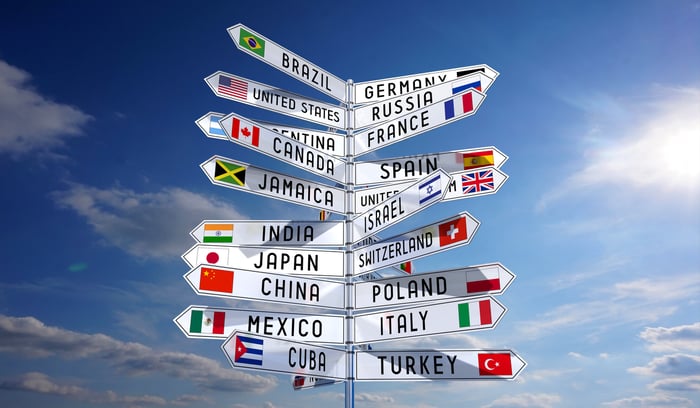Unilever (UL 0.98%) stock is down more than 20% from its peak levels in 2019 and is still off by more than 8% so far in 2022, even after a big price rebound in recent weeks. There are valid reasons to be worried about the company's near-term performance given it is in the middle of a corporate overhaul. However, there's still a key reason to remain positive about Unilever's longer-term prospects.
With that in mind, here's why long-term investors should remain optimistic about Unilever.
Unilever's new framework
Unilever has been revamping its business for a number of years at this point, including switching from an unusual dual listing structure to a single listing. It finalized that effort in 2020 under then-new CEO Alan Jope. Since that point, the company has tried (and failed) to acquire GlaxoSmithKlein's consumer healthcare segment, added an activist investor to its board (Nelson Peltz), and adjusted its business structure to increase the speed of decision making, among other things.

Image source: Getty Images.
There are a lot of moving parts at this international consumer staples giant right now. Thus, it is not surprising that these issues are attracting most of Wall Street's attention. However, there's something about Unilever that hasn't really changed much amid all of this upheaval: Almost 60% of its customers come from emerging markets.
Small but mighty
Most consumer staples giants have material exposure to developed markets, which are generally mature and highly profitable regions in which to operate. Emerging markets are smaller, but they are generally expected to offer more robust growth prospects over the long term. Unilever has clearly placed its bets on long-term growth. As such, long-term investors should probably focus more on its emerging-market exposure than on any of the near-term changes that are being made.
The proof of that was evident in the company's third-quarter earnings. For example, organic growth was 5.4% in Europe, which is pretty good given the geopolitical and economic headwinds the region is facing. North America saw organic growth of 8.3%, which is solid. Inflation-driven price increases were the main driver in both markets.
However, on the emerging market front, the company's Asia-Pacific same-store growth came in at 12.5%, with price increases and a modest boost in demand. Latin America was even better, with organic growth of 17.6% driven entirely by price increases. Asia-Pacific, meanwhile, deserves a special mention because organic growth in the outsized China market was a minuscule 1.1%, meaning that other countries in the region did materially better.
Even during difficult times, emerging markets are performing exceptionally well for Unilever. All told, the company estimates that emerging markets posted organic growth of 13.3%. To be fair, many of the emerging markets are used to high rates of inflation, so the rising price environment today isn't as shocking as it would be in a developed market used to a more stable price environment. But that doesn't change the long-term appeal of having material emerging market exposure. In fact, it highlights the benefit, since it suggests that Unilever will have an easier time increasing prices in these markets in the future.
Keep your eye on the ball
When you look at Unilever and its generous 3.6% dividend yield, don't get too caught up in the short-term issues it faces. The company is working to improve its operations and, given its iconic brands, it should be able to get its house in order. The long-term future here is about emerging-market growth built on top of a solid developed-market foundation. Emerging markets are, and have long been, the big reason to love Unilever stock.





